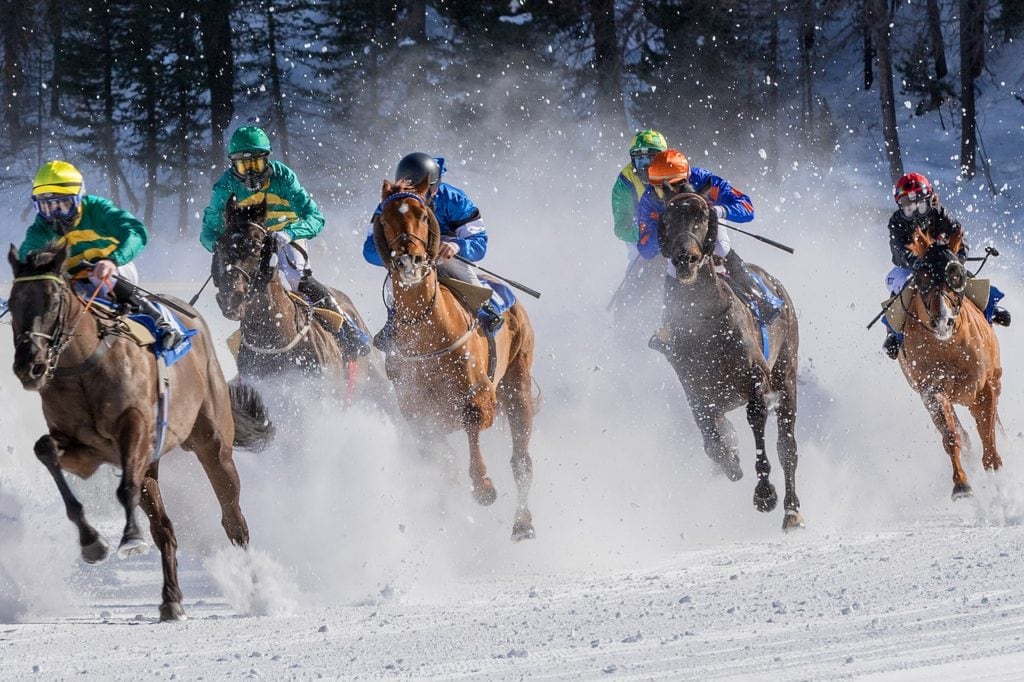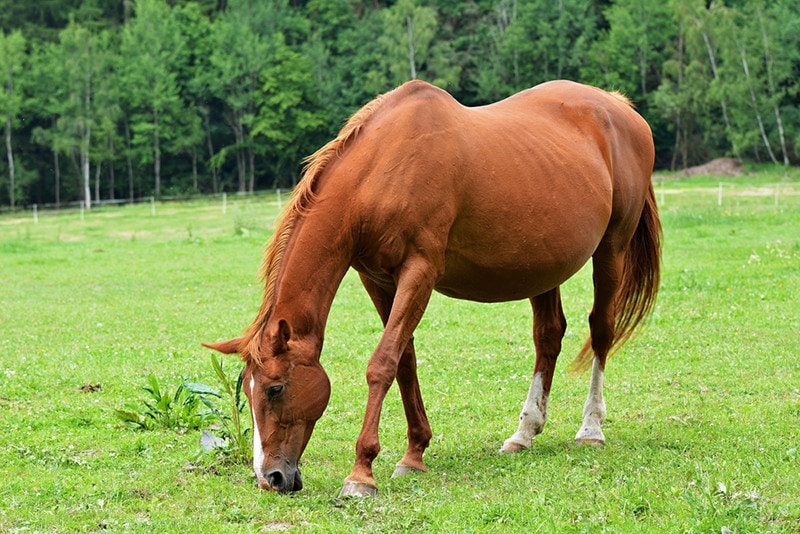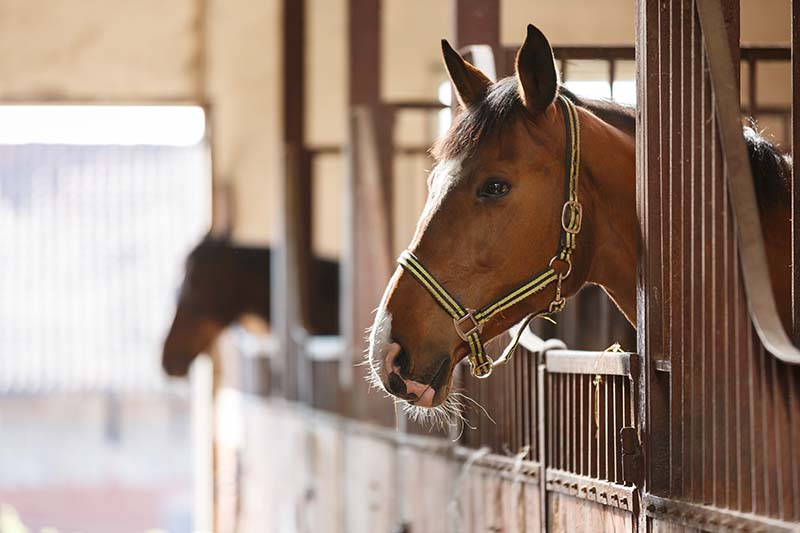
Have you ever watched a horse race and wondered what it takes to be a horse jockey? If so, you’ve come to the right place. In this article, we will answer all of your questions about the physical characteristics of successful jockeys.
On average, a horse jockey weighs between 108–118 pounds and is usually between 4’10” and 5’6” tall.
What Is a Horse Jockey?
A jockey is someone who races horses for a living. They tend to be self-employed and race for horse owners and trainers for a fee. They also usually get a percentage of any winnings the horse receives.
Jockeys tend to specialize in a particular kind of racing. For example, some types of races require the horse to run around an oval track, and some require the horse to jump over obstacles. No matter what type of race it is, the goal is to get the horse to cross the finish line before any other horses do.

How Much Does a Horse Jockey Weigh?
The average horse jockey weighs between 108–118 pounds. There is little variation in jockeys’ weight because race commissions set the maximum amount of weight that particular horses can carry, including equipment.
The practice of putting the lightest riders possible on racehorses is done in order to gain the best possible advantage; the less weight the horse has to carry, the faster it will run.
The horse’s health is also cited as a reason for strict weight limitations, as people say that carrying too much weight can cause the horse to develop injuries.
Some people argue that the specific weight requirements are arbitrary, and indeed they vary from race to race. The Kentucky Derby has one of the more lenient weight limits at 126 pounds.
How Tall are Horse Jockeys?
A horse jockey’s height is a bit more variable and typically ranges between 4’10” and 5’6”. This is because race commissions do not prescribe a minimum or maximum height. However, horse jockeys tend to be shorter than the average population because it is very difficult and usually unhealthy for a taller person to maintain such a low weight.
Most jockeys are men, which makes the low weight requirements even more extreme. The average American man is about 5’9” and weighs around 198 pounds; comparing those stats to your typical horse jockey, it’s not hard to see that jockeys are much smaller than your average person.

How Fit Do Horse Jockeys Need to Be?
In addition to meeting specific physical criteria, jockeys must be very fit. In order to control a powerful horse weighing at least 1,000 pounds, jockeys must be both agile and strong. Slacking in this area could cost a jockey their career. In order to be a jockey, you must have strong legs and a very strong core to control the horse and stay balanced in the saddle. You also need to have a good amount of endurance.
As you might imagine, it is very difficult to strike a balance between maintaining a particular level of fitness and making weight. It is well documented that jockeys turn to diets and quick weight-loss tricks such as saunas in order to make sure they weigh in under the maximum weight required by a particular race. These behaviors not only pose risks to a jockey’s overall health, but they are also risky in that they make it hard to be focused and strong for race day.

Summary
Horse racing may be tiresome for horses, but it is also fairly strenuous for jockeys. Being on the racetrack itself is fairly risky because of the risk of falling off the horse and sustaining serious injuries. When they aren’t racing, jockeys must be intentional about maintaining their fitness level and race weight to make sure they will be able to continue competing. If you are considering a career as a horse jockey, you should seriously consider the physical requirements and risks of the job as well as the level of dedication you will need in order to succeed.
Featured Image Credit: 8167078, Pixabay








